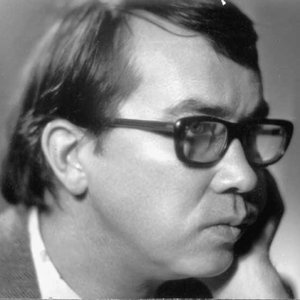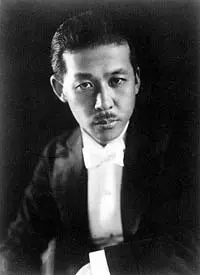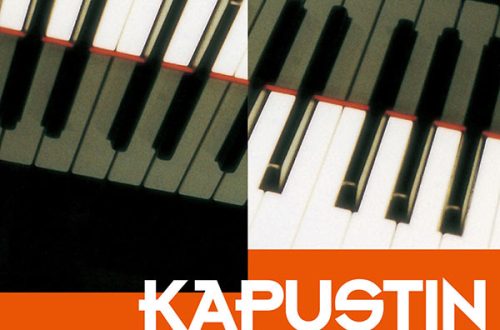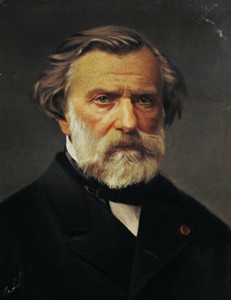
Alexander Nikolaevich Kholminov (Alexander Kholminov) |
Alexander Kholminov
The work of A. Kholminov has become widely known in our country and abroad. And this is not surprising, since each of his works, be it a song, an opera, a symphony, appeals to a person, causes active empathy. The sincerity of the statement, sociability makes the listener imperceptible to the complexity of the musical language, the deep basis of which is the original Russian song. “In all cases, music must prevail in the work,” says the composer. “Technological techniques are important, of course, but I prefer thought. Fresh musical thought is the greatest rarity, and, in my opinion, it lies in the melodic beginning.
Kholminov was born into a working-class family. His childhood years coincided with a difficult, contradictory time, but for the boy life was then open to its creative side, and most importantly, an interest in music was determined very early. The thirst for musical impressions was satisfied by the radio, which appeared in the house in the early 30s, which broadcast a lot of classical music, especially Russian opera. In those years, thanks to the radio, it was perceived as a purely concert, and only later became for Kholminov part of the theatrical performance. Another equally strong impression was the sound film and, above all, the famous painting Chapaev. Who knows, perhaps, many years later, a childhood passion inspired the composer to the opera Chapaev (based on the novel of the same name by D. Furmanov and the screenplay of the Vasiliev brothers).
In 1934, classes began at the music school in the Baumansky district of Moscow. True, I had to do without a musical instrument, since there were no funds to purchase it. Parents did not interfere with the passion for music, but they were preoccupied with the selflessness with which the future composer was engaged in it, sometimes forgetting about everything else. Still having no idea about the technique of composing, Sasha, being a schoolboy, wrote his first opera, The Tale of the Priest and His Worker Balda, which was lost during the war years, and in order to orchestrate it, he independently studied F. Gevart’s Guide to Instrumentation accidentally fell into his hands.
In 1941, classes at the school ceased. For some time Kholminov worked at the Military Academy. Frunze in the musical part, in 1943 he entered the music school at the Moscow Conservatory, and in 1944 he entered the conservatory in the composition class of An. Alexandrov, then E. Golubeva. The creative development of the composer proceeded rapidly. His compositions were repeatedly performed by the student choir and orchestra, and the piano preludes and the “Cossack Song”, which received the first prize at the Conservatory competition, were heard on the radio.
Kholminov graduated from the Conservatory in 1950 with the symphonic poem “The Young Guard”, was immediately admitted to the Union of Composers, and soon real great success and recognition came to him. In 1955, he wrote “Song of Lenin” (on the stanza of Yu. Kamenetsky), about which D. Kabalevsky said: “In my opinion, Kholminov succeeded in the first artistically complete work dedicated to the image of the leader.” Success determined the subsequent direction of creativity – one by one the composer creates songs. But the dream of an opera lived in his soul, and, having refused a number of tempting offers from Mosfilm, the composer worked for 5 years on the opera Optimistic Tragedy (based on the play by Vs. Vishnevsky), completing it in 1964. From that time on, the opera became the leading genre in the work of Kholminov. Until 1987, 11 of them were created, and in all of them the composer turned to national subjects, drawing them from the works of Russian and Soviet writers. “I love Russian literature very much for its moral, ethical height, artistic perfection, thought, depth. I read Gogol’s words worth their weight in gold,” says the composer.
In opera, a connection with the traditions of the Russian classical school is clearly traced. The Russian people at turning points in the history of the country (“Optimistic tragedy, Chapaev”), the problem of Russian tragic awareness of life (B. Asafiev) through the fate of the human personality from an individual, psychological perspective (“The Brothers Karamazov” by F. Dostoevsky; “The Overcoat” by N Gogol, “Vanka, Wedding” by A. Chekhov, “Twelfth Series” by V. Shukshin) – such is the focus of Kholminov’s operatic work. And in 1987 he wrote the opera “Steelworkers” (based on the play of the same name by G. Bokarev). “A professional interest arose to try to embody a modern production theme in musical theater.”
Very fruitful for the composer’s work was a long-term collaboration with the Moscow Chamber Musical Theater and its artistic director B. Pokrovsky, which began in 1975 with the production of two operas based on Gogol – “The Overcoat” and “Carriage”. Kholminov’s experience was developed in the work of other Soviet composers and stimulated interest in the chamber theater. “For me, Kholminov is closest to me as a composer who composes chamber operas,” says Pokrovsky. “What is especially precious is that he writes them not to order, but at the behest of his heart. Therefore, probably, those works that he offers to our theater are always original. The director very accurately noticed the main feature of the composer’s creative nature, whose customer is always his own soul. “I must believe that this is the work I must now write. I try not to replicate myself, not to repeat myself, every time I look for some other sound patterns. However, I do this only according to my inner need. At first, there was a desire for large-scale stage musical frescoes, then the idea of a chamber opera, which allows one to plunge into the depths of the human soul, fascinated. Only in adulthood did he write his first symphony, when he felt that there was an irresistible need to express himself in a major symphonic form. Later he turned to the genre of the quartet (there was also a need! )
Indeed, symphony and chamber-instrumental music, in addition to individual works, appear in the work of Kholminov in the 7080s. These are 3 symphonies (First – 1973; Second, dedicated to his father – 1975; Third, in honor of the 600th anniversary of the “Battle of Kulikovo” – 1977), “Greeting Overture” (1977), “Festive Poem” (1980), Concert- symphony for flute and strings (1978), Concerto for cello and chamber choir (1980), 3 string quartets (1980, 1985, 1986) and others. Kholminov has music for films, a number of vocal and symphonic works, a charming “Children’s Album” for piano.
Kholminov is not limited only to his own work. He is interested in literature, painting, architecture, attracts communication with people of various professions. The composer is in constant creative search, he works hard and hard on new compositions – at the end of 1988, Music for Strings and Concerto grosso for chamber orchestra were completed. He believes that only everyday intense creative work gives rise to true inspiration, bringing the joy of artistic discoveries.
O. Averyanova





